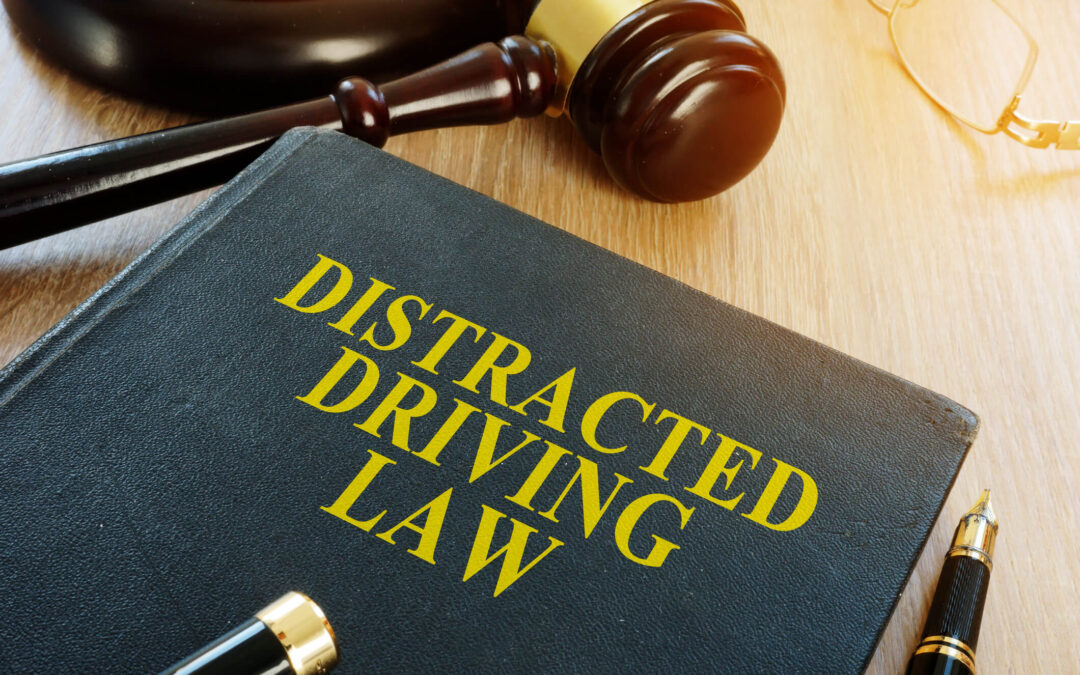According to transportation statistics from the CDC, about eight people in the United States are killed every day in crashes involving a distracted driver. While distracted driving is a nationwide problem, laws vary by state.
On July 1, 2019, a new law took effect in Florida to ban texting while driving. If you are involved in a traffic accident in Florida, it is important to know whether the responsible driver is subject to distracted driving laws like this and how they might impact your legal case.
Here, we provide a guide to Florida’s distracted driving laws as well as advice for what to do if you get injured by a distracted driver.
What is distracted driving?
Distracted driving is defined as operating a car, truck, or motor vehicle while doing another activity that takes one’s attention away from the road. There are different kinds of driver distractions, including manual, visual, or cognitive distractions. A manual distraction involves the driver taking his or her hands off the wheel. A visual distraction includes the driver taking his or her eyes off the road. And a cognitive distraction is when a driver is thinking about anything other than operating the vehicle.
Why is distracted driving a difficult problem to solve?
Distracted driving increases the likelihood of an accident. CDC reports that in the United States more in 2018, than 2,800 people were killed and an estimated 400,000 were injured in crashes involving a distracted driver. Also, about one in five of the people who died in crashes involving a distracted driver were not in vehicles; they were walking, riding their bike, or doing other activities as pedestrians.
Does multitasking count as distracted driving?
Multitasking while driving, such as using a cellphone, does count as distracting driving because the driver is engaging in an activity that takes his or her full attention away from the road. Studies reveal different results about the impacts of multitasking on driving ability. One study from Frontiers in Psychology found that certain multitasking activities (such as tablet use) result in higher accident rates, while others (like passive radio listening) might improve driver focus. Many drivers who think they are skilled at multitasking, however, are actually more likely to cause an accident because they may find it more difficult to focus on one primary task.
“Florida Ban on Texting While Driving Law” explained
Florida’s 2019 distracted driving law instituted a ban on “texting while driving.” The law, aptly titled “Florida Ban on Texting While Driving Law,” comes as a partnership between the Florida Department of Highway Safety and Motor Vehicles, the Florida Department of Transportation, and law enforcement. These departments joined forces to educate Floridians on the dangers of texting while driving and distracted driving overall.
Texting while driving becomes a primary vs. secondary offense
As of January 1, 2020, texting while driving moved up from a secondary offense to a primary offense. This gives officers the authority to pull a motorist over solely for texting while driving. Previously, texting while driving was only a secondary offense and officers could only issue a citation if the driver had been pulled over for another primary offense, such as a moving violation.
Distracted driving penalties in Florida
Distracted driving penalties in Florida vary depending on whether it is a first offense, subsequent offense, or occurred in a school zone.
- A first offense is a non-moving violation that includes a fine of $30 plus court costs and fees. No points are assessed against the driver’s license.
- Subsequent offenses, if committed within five years of the previous offense, are considered moving violations. They result in fines of $60 plus court costs and fees plus three points are assessed against the driver’s license.
- Using a handheld device in a school zone is a moving violation, even if it’s a first offense. The fine is $60 plus court costs and fees and three points are assessed against the driver’s license.
Exemptions for distracted driving
There are certain situations where Florida’s distracted driving laws do not apply.
Using navigation while driving
Florida’s ban on texting while driving won’t penalize drivers who receive messages from navigation applications, like Google Maps.
Texting at a stoplight
Distracted driving laws won’t apply to drivers who are texting while their vehicle is stationary. This means texting at a stoplight or stop sign is not an offense.
Remember, just because distracted driving laws may not always apply, you should maintain awareness of your surroundings while operating a motor vehicle. If you are injured in a traffic accident, the driver may claim they weren’t distracted. This is why it is important to consult with an experienced accident attorney.
What should you do if you’re injured by a distracted driver?
If you suffer an injury due to an accident with a distracted driver, there are a few steps you should take to protect yourself and build the strongest personal injury case.
- First, ensure that the driver who caused the accident does not leave the scene of the accident.
- If the accident is a hit and run, the injured driver should try to take down any information, such as the color or make and model of the vehicle or the license plate number.
- Call the police to document the scene and take statements.
- Seek medical attention after the accident. Even if you don’t feel injured, any delay can be used by the plaintiff’s insurance company to deny your claim or lawsuit.
- Consult an attorney who is experienced in distracted driving accident cases.
Note that the type of injury lawyer your case requires will depend on the circumstances of the accident. A car accident involving a distracted driver should be handled differently from a semi-truck accident or a pedestrian accident.
*The information in this article was either written or reviewed for accuracy by Marc Matthews, an experienced personal injury attorney and managing partner at Matthews Injury Law.
